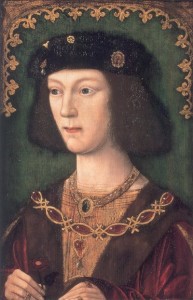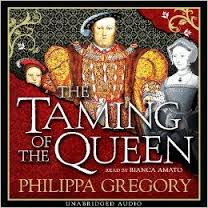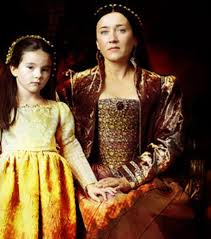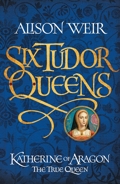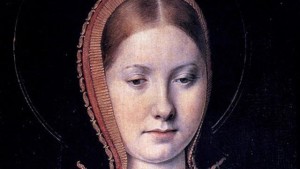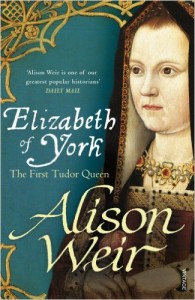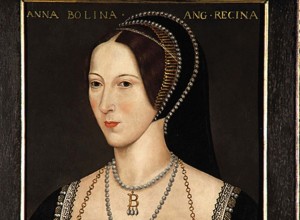
A few weeks ago, I blogged some #QuickFireThoughts on the extra-marital antics of the young Henry VIII. While I maintain my view that he was probably a virgin upon marriage, I’ve had cause to doubt my suggestions that he might have been faithful to Catherine of Aragon in the early years of marriage.
Although I didn’t go into detail in my previous post, my reflections were based largely on David Loades’ view that accusations of Henry getting all Marvin Gay* with Anne Hastings (nee Stafford) had been misinterpreted by some historians. This lady of high-breeding was the first woman that Henry was accused of playing away with. According to Loades, it would be wiser to interpret their affair as simply being one of courtly love – a kind of permitted flirtation involving tokens, love letters and gestures – rather than one of a sexual nature.
This seemed credible. But having had the chance to #DigALittleDeeper I’ve started to (as Celine would say) think twice.
Rumours of the King’s affair with Anne Stafford come down to us because they are preserved in a letter home by Don Luis Caroz, the Spanish Ambassador. Now pay attention – this next bit gets complicated!
The story goes that Anne’s sister, Lady Fitzwalter (when both were at court), was getting pretty anxious about the attentions being paid to her sibling by William Compton, a courtier and BFF of Henry VIII. Lady Fitz got so worked up that she had a quiet word with her brother, the Duke of Buckingham who decided to intervene directly. Now remember Tudor fans, the Stafford family were descended from Edward III through two separate lines. They were brimming with old royal blood and considered the Tudors as under-qualified upstarts. The thought of his sister carrying on with the lowly Compton would have horrified old Buckingham.
When he went to his sister to confront her, he actually found her to be in Compton’s presence, perhaps confirming his worst fear. He upbraided them both before Anne’s husband, Lord Hastings, packed her off a nunnery.
The problem is that rumours persisted that Compton had only been a stalking horse. Really, he was providing cover for an affair underway between Anne and Henry and these were rumours that the Spanish ambassador believed.
Henry guessed straight away that Lady Fitzwalter – a favourite lady-in-waiting to Queen Catherine of Aragon – had been the source of the exposure and banished her from court. The Queen was furious about the whole situation and struggled to conceal her wrath.
What then should we, all these years later, make of it?
On the one hand there is no evidence – just rumour – that Henry had been involved with Anne at all. Nonetheless, I believe there is every reason to think that he had been behaving less than honourably.
To start with, is the King’s reaction, which the ambassador certainly believes to be, incriminating. True, Henry might not have liked the thought of Lady Fitzwalter bad mouthing his good mate, but would this really have been enough to trigger such a reaction? Similarly we must consider the Queen’s anger. Is it likely she would have allowed it to become so widely known that she was quarreling with the King simply because of the behaviour of his friend? It is also unlikely that she would be quite so miffed if the only interactions between Anne and Henry had been those of innocent courtly love.
I think the most compelling reason to believe in Henry’s guilt is that the Spanish ambassador, a man who knew the characters involved and possibly had access to more information than we see in the letter, had reason to think Henry had strayed. At the time of writing, Catherine’s father was the effective King of Spain – the ambassador is unlikely to have reported gossip that he was not sure could be substantiated, especially when it affected his reader’s daughter so personally. That said, it is clear from internal evidence that a big reason for writing was to try and get Catherine’s Friar – who he believed had goaded the Queen into over-reacting and therefore potentially costing Spain influence – into trouble with authorities back home.
As ever, we can never be 100% sure. But at the very least, I’m happy to confess that my previous suggestion about Henry’s early faithfulness should now be discarded. For more on this subject, I suggest readers check out David Loades’ book on Henry VIII and ‘The Six Wives of Henry VIII’ by Alison Weir. While researching I also came across this extremely good blog post by Susan Higginbotham, which is well worth checking out.
So geeks…over to you. Am I being too quick to judge? Am I simply being swayed by Henry’s unfair reputation as a womaniser? Or have I hit the nail on the head?
*And getting it on
